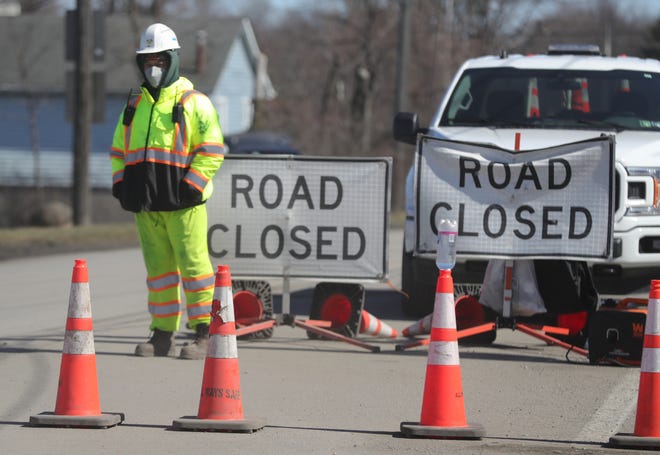
In times of crises, we expect our leaders in government, the community and business to step up to do everything possible to manage the fallout of the crisis with a goal of mitigating any subsequent losses.
We expect them to be on site, taking charge, coordinating activities, and communicating clearly and thoroughly to those directly impacted. And most of the time, this is exactly what happens.
On the evening of Feb. 3, in the small town of East Palestine, Ohio, a Norfolk Southern freight train left the tracks creating one of worst industrial and environmental disasters in recent history. According to the National Transportation Safety Board (NTSB), 38 cars derailed and a fire ensued, damaging another 12 cars. There were 20 cars carrying hazardous materials, 11 of which derailed. This is easily defined as a crisis − an environmental crisis, a safety crisis, and now, a crisis of leadership.
As this was primarily caused by a transportation issue, one would think the U.S. Secretary of Transportation and other top staff would be on the scene within hours, ready with action plans to protect the citizens and contain the damage. Some representatives from the United States Department of Transportation (USDOT) did arrive on the scene, but it was only two weeks later and amid public outcry, that Secretary Pete Buttigieg finally made a visit.
Since the track and equipment are owned by Norfolk Southern, one would also think the CEO and other top-level officers of the company would also be on the scene within hours. The president of Norfolk Southern did finally visit East Palestine: two full weeks later.
At a town hall meeting, local residents gathered to express their concerns about water and air safety. Hundreds showed up only to find that no one from Norfolk Southern bothered to attend.
How leaders respond to a crisis is oftentimes more telling than the crisis that occurred in the first place. Trying to “run out the clock” in hopes that public outrage will wane is rarely an effective strategy. When our leaders, whether in government or business, fail to respond in a timely manner, citizens rightfully feel they are not working for us.
In this case, Secretary Buttigieg and the executive leadership at Norfolk Southern need not only to take responsibility for the crisis, but also for their failure to respond to that crisis in a way that restores faith in their respective institutions. It seems that is finally happening, but the longer it takes, the harder it is to regain public trust.
photo, Phil Masturzo, Akron Beacon Journal
published, The Tennessean




Well said, Both leaders should have emergency response planning as part of their organization’s way of life.
Both failed as did their organizations. Both need to resign and let others more capable take over.
You need to look back a bit further if you want to discuss ownership and leadership, or the lack thereof…
Trump and his administration made gutting transportation and environmental safety regulations a key priority of their MAGA agenda.
Trump and his administration rolled back back transportation safety and environmental rules, including toxic chemical regulations:
Associated Press: “Trump has made reducing regulations a priority, seeing many rules as an unnecessary burden on industry. Last month he tweeted that his administration ‘has terminated more UNNECESSARY Regulations, in just 12 months, than any other Administration has terminated during their full term in office…’‘The good news is,’ he wrote, ‘THERE IS MUCH MORE TO COME!’”
Yahoo: “…in 2014, when the Obama administration unveiled new safety rules that, among other things, required ECP brakes on trains hauling a certain amount of crude oil and other so-called “high-hazard flammable” materials. The Association of American Railroads, an industry lobbying group of which Norfolk Southern is a member, fiercely opposed the regulations… At the urging of AAR and other rail interests, the industry-friendly Trump administration repealed the Obama-era ECP brake rule in 2018.”
New York Times: “Over four years, the Trump administration dismantled major climate policies and rolled back many more rules governing clean air, water, wildlife and toxic chemicals. In all, a New York Times analysis, based on research from Harvard Law School, Columbia Law School and other sources, counts nearly 100 environmental rules officially reversed, revoked or otherwise rolled back under Mr. Trump. More than a dozen other potential rollbacks remained in progress by the end but were not finalized by the end of the administration’s term.”
Trump’s budget proposals slashed funding for investigating accidents, enforcing environmental rules, and prosecuting environmental crimes:
E&E News: “The administration has proposed eliminating the U.S. Chemical Safety Board, an independent agency that investigates accidents at refineries, chemical plants, and oil and gas production sites, saying its work duplicates other agencies. The safety board, though, has bipartisan support in Congress and has survived previous attempts to abolish it.”
Bloomberg: “The [Trump] administration’s fiscal year 2020 budget proposal would cut a fifth of the funding for the Environmental Protection Agency’s forensics efforts, which support its civil and criminal enforcement investigations.”
Almost every year he was in office, Trump called for major cuts to the Department of Transportation and Environmental Protection Agency’s budgets:
Politico: “The administration is also seeking… a 13 percent cut to the Department of Transportation. The EPA’s budget would see a nearly 27 percent chop.”
Slate: “In Trump’s budget, which was also released today, the discretionary budget for the DOT falls by $3.7 billion; the EPA’s is cut by $2.8 billion.
Washington Post: “The $16.2 billion budget for discretionary transportation spending represents a nearly 13 percent reduction in transportation spending over fiscal 2017.”
Biden has been in office over 2 years and that is plenty of time to address the issues you referenced. I think you are missing the point of the article. This wasn’t a political hit piece, it specifically referenced failure in leadership.